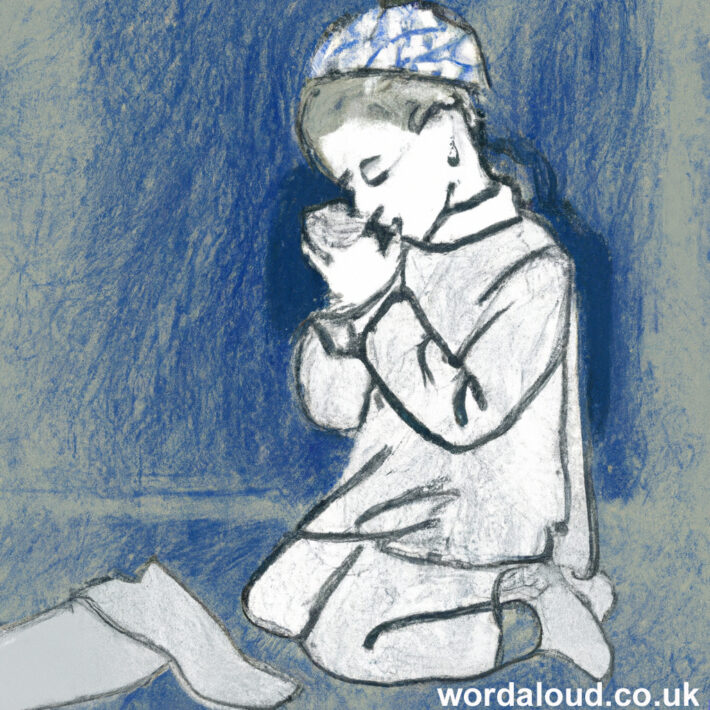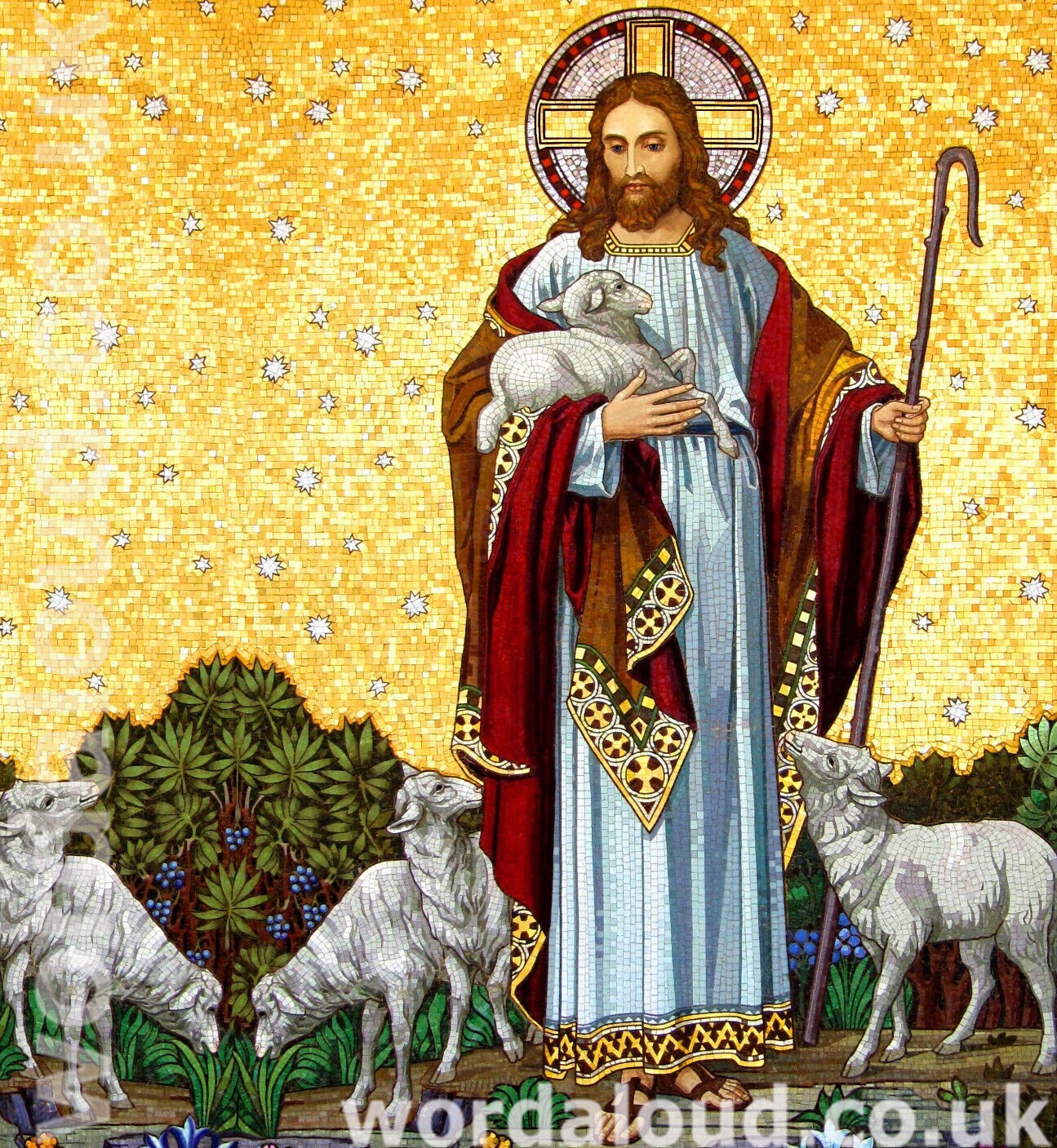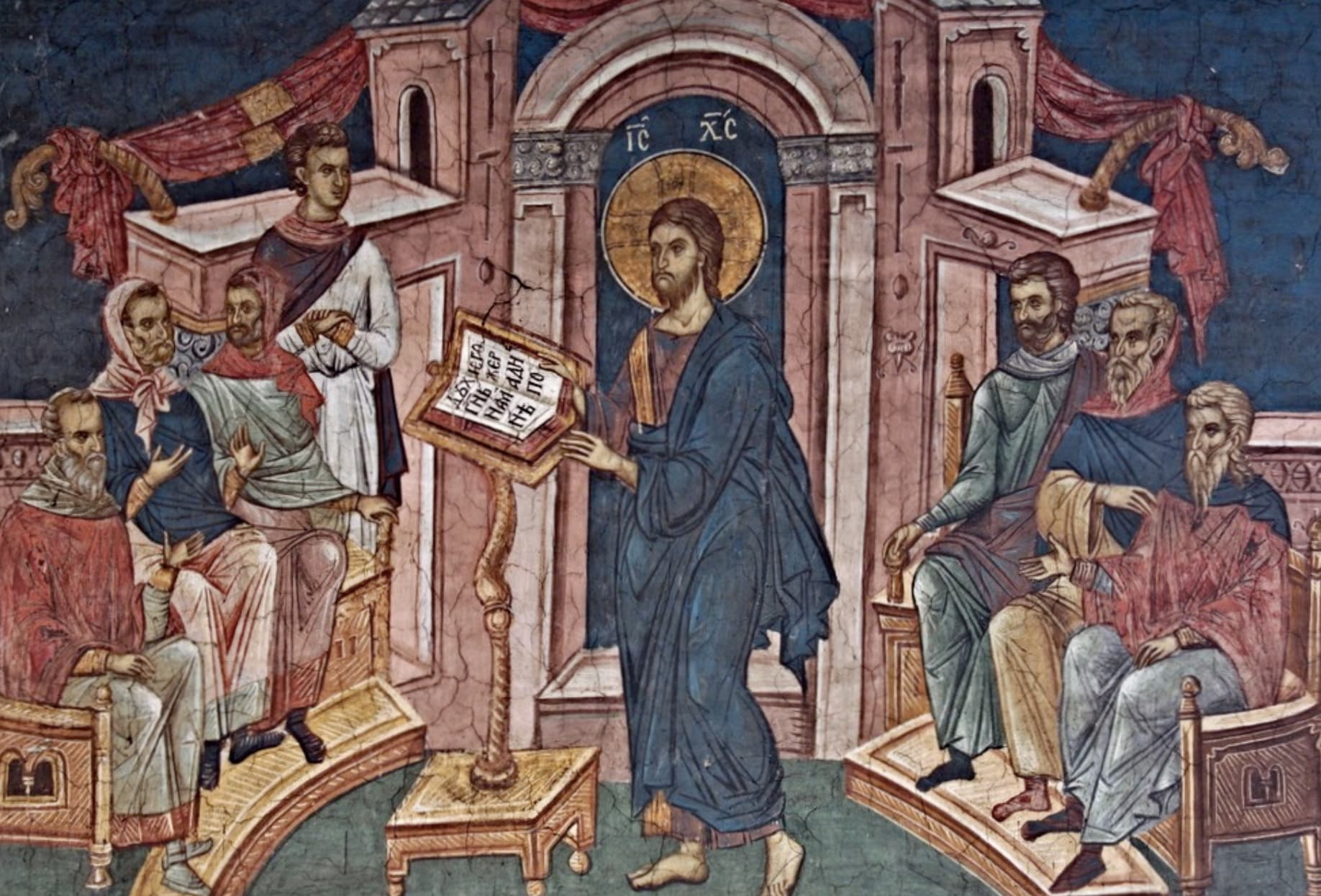Christian Art | Prayer With Jesus | Psalms | King David As A Boy | Plea For Justice And Declaration Of Righteousness | Psalms Teach Us How To Pray To God
Psalm 26 | King James Audio Bible
YouTube: Psalm 26 KJV | King James Audio Bible | Word Aloud
Psalm 26 declares innocence and an earnest request for divine scrutiny and vindication. It represents a heartfelt commitment to living a life characterized by integrity and righteousness as perceived by the Lord.
At the beginning of the psalm, the psalmist expresses unwavering trust in God’s judgment and asserts his own integrity. He invites God to examine and test his heart and motives, demonstrating a willingness to undergo God’s scrutiny.
Throughout the psalm, a clear distinction is drawn between the psalmist and those deemed wicked or evildoers. The psalmist firmly distances himself from individuals associated with deceit and wrongdoing, emphasizing his commitment to a righteous path.
The psalmist also demonstrates profound love for God’s house and the place where His honour resides, indicating a deep spiritual connection and a desire to worship and give thanks.
The psalm highlights the contrast between the psalmist’s devotion and integrity and the behaviour of the wicked, who are depicted as engaging in mischief and corruption. The psalmist humbly requests redemption and mercy while affirming his commitment to walking in integrity.
Towards the end of the psalm, the psalmist asserts steadfast faith and trust in God’s justice, symbolized by his secure footing in an even place. The psalm concludes with a resolute commitment to bless the Lord among the congregations, underscoring dedication to a life of righteousness and gratitude.

Psalm 26 | King James Audio Bible KJV
Judge me, O Lord; for I have walked in mine integrity: I have trusted also in the Lord; therefore I shall not slide.
Examine me, O Lord, and prove me; try my reins and my heart.
For thy lovingkindness is before mine eyes: and I have walked in thy truth.
I have not sat with vain persons, neither will I go in with dissemblers.
I have hated the congregation of evildoers; and will not sit with the wicked.
I will wash mine hands in innocency: so will I compass thine altar, O Lord:
That I may publish with the voice of thanksgiving, and tell of all thy wondrous works.
Lord, I have loved the habitation of thy house, and the place where thine honour dwelleth.
Gather not my soul with sinners, nor my life with bloody men:
In whose hands is mischief, and their right hand is full of bribes.
But as for me, I will walk in mine integrity: redeem me, and be merciful unto me.
My foot standeth in an even place: in the congregations will I bless the Lord.

Key Themes Of The Psalm For Reflection | Love Revealed By Jesus Christ
- Declaration of Innocence: The psalmist boldly asserts innocence and trust in God’s judgment.
- Divine Examination: There is a plea for God to examine heart and motives, showcasing a willingness to undergo divine scrutiny.
- Separation from the Wicked: The psalmist expresses a strong aversion to associating with the wicked and evildoers, emphasizing commitment to righteousness.
- Devotion to God’s Sanctuary: Love for God’s house and a deep desire to worship and give thanks in His presence are evident.
- Contrast with the Wicked: The psalm highlights the contrast between the psalmist’s integrity and the behavior of the wicked, who engage in mischief and corruption.
- Request for Redemption and Mercy: There’s a plea for God’s redemption and mercy, coupled with a commitment to walk in integrity.
- Trust in God’s Justice: The psalmist firmly trusts in God’s justice, symbolized by secure footing in an even place.
- Commitment to Gratitude: The psalm concludes with a resolute commitment to bless the Lord among the congregations, reflecting dedication to a life of righteousness and gratitude.








